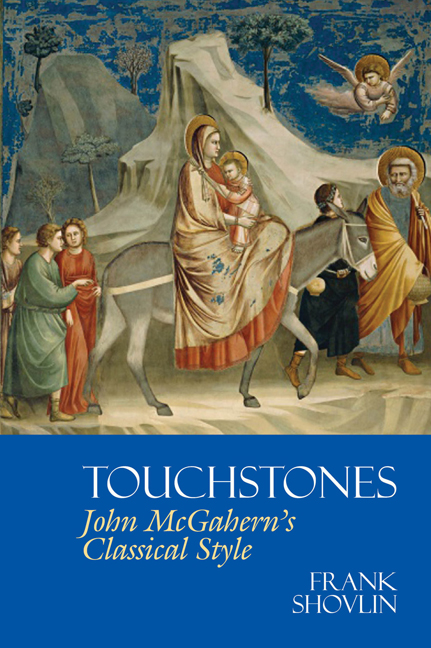Conclusion: What Then?
Summary
‘The work is done,’ grown old he thought,
'According to my boyish plan;
Let the fools rage, I swerved in naught,
Something to perfection brought’;
But louder sang that ghost, ‘What then?’
W. B. Y eats, ‘What Then?’Like Jamesie of That They May Face the Rising Sun, John McGahern stands hidden behind the wind breaks and shelterbelts, watching stealthily as we try to bring his work to life. Occasionally his touchstones reveal themselves to provide assistance, but his nature as a writer is what Joyce would call ‘scrupulous’. Why demand so much from the reader? John Ruskin has the best answer to that question in his thoughts on the purpose of literary concealment:
And be sure, also, if the author is worth anything, that you will not get at his meaning all at once; – nay, that at his whole meaning you will not for a long time arrive in any wise. Not that he does not say what he means, and in strong words too; but he cannot say it all; and what is more strange, will not, but in a hidden way and in parables, in order that he may be sure you want it.
By being difficult, by not spelling it out, McGahern is making sure we want it, and, if we do, then we will experience an enrichment of the intellect and the soul. This is something he learned while young as he entered the world of great books and began to absorb the good manners of the mind. Now, having conversed with the great tradition, and having played with it and transformed it in the shadow of his own personality, his work offers us the chance to bathe in the same light. Though now ten years dead, ‘he continues to enlighten us’, as Proust wrote of Ruskin, ‘like those dead stars whose light reaches us still’. McGahern, by dint of the sort of ‘atrocious labour’ considered a prerequisite by Flaubert to producing great art, has left behind a body of work that joins the canon, and will stand for generations to come.
- Type
- Chapter
- Information
- Touchstones: John McGahern’s Classical Style , pp. 180 - 185Publisher: Liverpool University PressPrint publication year: 2016



